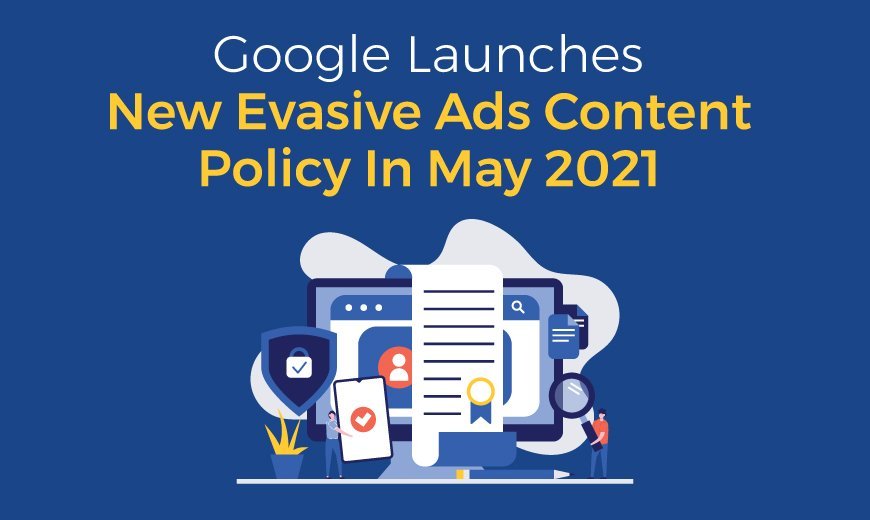
Google launches new evasive ads content policy in May 2021
Google Chrome is ditching third-party cookies permanently. If all goes according to plan then future updates to the world’s hottest browser will rewrite the principles of online advertising and make it far harder to trace the online activity of billions of individuals. But it’s not that straightforward. What looks like a massive win for privacy may, in the long run, simplest serve to tighten Google’s grip on the advertising industry and web as an entire. Google launches new evasive ads content policy.
Critics and regulators argue the flow risks putting smaller online advertising companies out of commercial enterprise and might damage websites that accept as true with advertisements to make money. For many people, the change is getting to be invisible but, behind the scenes, Google is going to put Chrome on top of things of variety of the advertising process. To try and this it plans to use browser-based device gaining knowledge to log your browsing history and lump humans into corporations along with others with similar interests.
Google’s plan to replace third-party cookies comes from its Privacy Sandbox, a goggle of proposals for improving online adverts without obliterating the ad industry. Apart from getting obviate third-party cookies the Privacy Sandbox also deals with issues like advertising fraud, reducing the number of CAPTCHAs people see and introducing new ways for companies to live the performance of their ads. Many Google critics say parts of the proposals are an improvement on the prevailing setup and good for the web.
Change is important. The web advertising enterprise is, to position it mildly, unwieldy. It accommodates billions of information factors approximately all of our lives which might be robotically traded every 2nd of every day. This kind of giant change to this device will impact a raft of businesses, from brands advertising products and services online to the ad tech networks and newsgroups that propel those commercials to every nook of the internet.
The Privacy Sandbox proposals are complicated and technical. Google is already testing some while others remain firmly at the event stage. Privacy Sandbox is documented online and Google has altered its plans to support feedback and counter-proposals from rivals. But, ultimately, when it involves Chrome, everything is controlled by Google.
The removal of third-party cookies from Chrome, first announced in January 2020, has been an extended time coming. Mozilla’s Firefox blocked third-party cookies in 2019 – the matter is so considerable that the browser is presently blocking ten billion trackers according to today.
In case you’re using Chrome on the immediate than the websites you visit, with more than one exception, will upload a third-birthday celebration cookie for your device. These cookies – small snippets of code – can track your surfing records and display commercials supported this. Third-party cookies send all the data they collect back to a special domain than the one you’re currently on. First-party cookies, by evaluation, beam facts back to the owners of the domain you’re visiting at the time. Third-party cookies are the foremost reason why the shoes you verified a fortnight ago are still stalking you around the web. All the data gathered by third-party cookies are used to make user profiles, which can include your interests, the things you buy, and behaviors online – this may be fed back to murky data brokers.
So what are the alternatives? Google plans to specialize in ads against people’s general interests using an AI system called Federated Learning of Cohorts (FLoC). Google hasn’t defined what these groups are getting to be yet but they go to incorporate thousands of people that have similar interests. Advertisers will then be able to put ads before individuals supported the group they’re in. If Google’s AI works out you really like sneakers, as an example, then you’ll be chucked during a gaggle with other similarly-minded sneaker fans.
The corporate additionally says it’s against its ad policies to serve personalized advertisements supported by touchy categories. FLoC companies that reveal human beings’ race, sexual orientation, and different classes are becoming to be blocked or, if that’s not possible, Google says it’ll trade its algorithm to “reduce the correlation”.
However third-party cookies aren’t the most effective way advertisements are served on the web – and that’s in which the relaxation of privacy Sandbox is available. While third-party cookies are eliminated groups that accumulate first-party data are probably capable of higher goal adverts. As an example, if you’re logged into a news website that site is getting to be able to collect data about what you read and understand your interests. Meaning it can show adverts which can be more relevant to you as a personal – the more relevant an ad, the additional money it can make.
Conclusion:-
Ultimately, if the web moves to a system where first-party data becomes the foremost way of serving adverts then the foremost important tech platforms may benefit the foremost. Or believe Google and Facebook to collect that data for them. So, Google launches new evasive ads content policy in May 2021
 +91 98792 74063
+91 98792 74063












